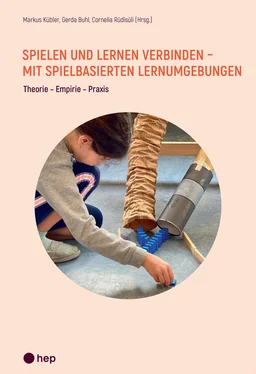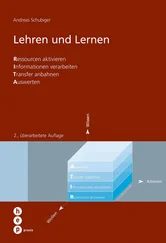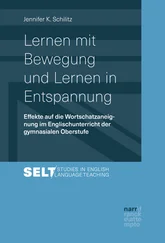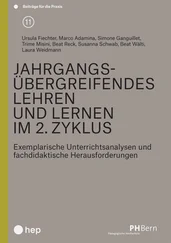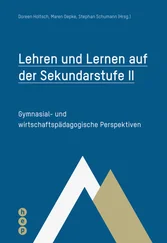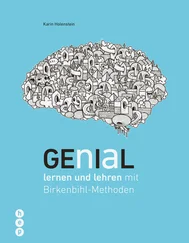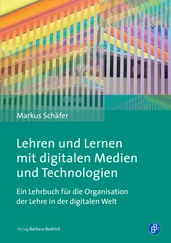Bauer, J. (2015). Selbststeuerung. Die Wiederentdeckung des freien Willens. München: Karl Blessing Verlag.
Brankaer, C., Ghesquière, P. & De Smedt, B. (2015). The Effect of a Numerical Domino Game on Numerical Magnitude Processing in Children With Mild Intellectual Disabilities. Mind Brain and Education, 9(1). S. 29−39.
Brown, S. & Vaughan, C. (2009). Play: How it shapes the brain, opens the imagination, and invigorates the soul. New York: Avery.
Burghardt, G. M. (2011). Defining and recognizing play. In A. D. Pellegrini (Hrsg.). The Oxford handbook of play. New York: Oxford University Press. S. 9–18.
Damast, A., Tamis-LeMonda, C. & Bornstein, M. (1996). Mother-child play: Sequential interactions and the relation between maternal beliefs and behaviors. Child Development, 67. S. 1752–1766.
Dickinson, D. K., Hirsh-Pasek, K., Golinkoff, R. M., Nicolopoulou, A. & Collins, M F. (2013). «The Read-Play-Learn Intervention and Research Design.» Paper presented at the biennial meeting of the Society for Research in Child Development in Seattle, Washington.
Elschenbroich, D. (2001). Weltwissen der Siebenjährigen. Wie Kinder die Welt entdecken können. München: Antje Kunstmann.
Ericsson, K. A. & Pool, R. (2016). TOP. Die neue Wissenschaft vom bewussten Lernen. Aus dem Amerikanischen v. G. Gockel, B. Steckhan & C. Varrelmann. München: Pattloch.
Fisher, K., Hirsh-Pasek, K., Golinkoff, R. M., Singer, D. G. & Berk, L. (2011). Playing around in school: Implications for learning and educational policy. In: Pellegrini, A. D. (Hrsg.), The Oxford handbook of play. London: Oxford University Press. S. 341−360.
Fried, L. (2004). Kindergartenkinder ko-konstruieren ihr Wissen über die soziale Welt. Eine Exploration inszenierter Handpuppenspiele. In: Fried, L. & Büttner, G. (Hrsg.). Weltwissen von Kindern. Weinheim: Juventa. S. 55–77.
Fthenakis, W. E. (2004). Bildungs- und Erziehungspläne für Kinder unter sechs Jahren – nationale und internationale Perspektiven. In: Faust, G., Götz, M., Hacker, H. & Roßbach, H. G. (Hrsg.). Anschlussfähige Bildungsprozesse im Elementar- und Primarbereich. Bad Heilbronn: Klinkhardt. S. 9–26.
Gasteiger, H. (2013). Förderung elementarer mathematischer Kompetenzen durch Würfelspiele – Ergebnisse einer Interventionsstudie. In: Greefath, G., Käpnick, F. & Stein, M. (Hrsg.). Beiträge zum Mathematikunterricht 2013. Münster: WTM. S. 336–339.
Ginsburg, H. P. & Ertle, B. (2008). Knowing the Mathematics in Early Childhood Mathematics. In: O. N. Saracho & B. Spodek (Hrsg.). Contemporary perspectives on mathematics in early childhood education Charlotte, NC: IAP Information Age Publishing. S. 45−66.
Gopnik, A. & Walker, C.M. (2013). Considering counterfactuals: The relationship between causal learning and pretend play. American Journal of Play (Special Issue), 6(1), S. 15−28.
de Haan, A., Elbers, E., Hoofs, H. & Leseman, P. (2013). Targeted versus mixed preschool and kindergartners: effects of classroom composition and teacher-managed activities on disadvantaged children’s emergent academic skills. School Effectiveness and School Improvement: An International Journal of Research, Policy, and Practice, 24. S. 177−194.
Hattie, J. (2003). Distinguishing Expert Teachers from Novice and Experienced Teachers. Teachers Make a Difference. What is the research evidence? University of Auckland; Australian Council for Educational Research.
Hattie, J. A. C., Beywl, W. & Zierer, K. (2014). Lernen sichtbar machen für Lehrpersonen: Überarbeitete deutschsprachige Ausgabe von «Visible Learning for Teachers». Besorgt von W. Beywl & K. Zierer. Baltmannsweiler: Schneider Verlag Hohengehren GmbH.
Hauser, B. ([2]2016). Spielen. Frühes Lernen in Familie, Krippe und Kindergarten. 2. Auflage. Stuttgart: Kohlhammer.
Hauser, B., Vogt, F., Stebler, R. & Rechsteiner, K. (2014). Förderung früher mathematischer Kompetenzen. Spielintegriert oder trainingsbasiert. Frühe Bildung, 3(3), S. 139−145.
Kamii, C. & Kato, Y. (2005). Fostering the development of logico-mathematical thinking in a card game at ages 5−6. Early Education & Development, 16. S. 367–383.
Kidd, C., Palmeri, H. & Aslin, R. S. (2012). Rational Snacking. Young Childrens Decision-Making on the Marshmallow Task is Moderated by Beliefs about Environmental Reliability. Cognition, 126. S. 109−114.
Largo, R. & Beglinger, M. (2009). Schülerjahre – wie Kinder besser lernen. München: Piper.
Leseman, P. M., Rollenberg, L. & Rispens, J. (2001). Playing and working in kindergarten: cognitive co-construction in two educational situations. Early Childhood Research Quarterly, 16. S. 363–384.
Lillard, A. S., Lerner, M. D., Hopkins, E. J., Dore, R. A., Smith, E. D. & Palmquist, C. M. (2013). The impact of pretend play on children’s development: A review of the evidence. Psychological Bulletin, 139(1), S. 1−34.
Morrissey, A.-M. & Brown, P. M. (2009). Mother and toddler activity in the zone of proximal development for pretend play as a predictor of higher child IQ. Gifted Child Quarterly, 53. S. 106–120.
Neuenschwander, M. P., Mayland, C., & Niederbacher, E. (2018). Wie faire Beurteilung möglich ist. Bildung Schweiz, 163(12). S. 34−35.
Neuenschwander, M. P., & Niederbacher, E. (2019). Förderliche und gerechte Beurteilung – der SCALA-Ansatz. Schweizerische Zeitschrift für Heilpädagogik, 25(7-8). S. 50−55.
Neumann, M. M. (2018). Using tablets and apps to enhance emergent literacy skills in young children. Early Childhood Research Quarterly, 42. S. 239−246.
Newland, L. A., Roggman, L. A., Pituch, K. A. & Hart, A. D. (2008). Play and attention: Social foundations of early language. International Journal of Psychology: A Biopsychosocial Approach / Tarptautinis psichilogijos žurnalas: Biopsichosocialinis požiūris, 2. S. 29−54.
Niggli, A. & Kersten, B. (1999). Lehrerverhalten und Wochenplanunterricht. Bildungsforschung und Bildungspraxis. Schweizerische Zeitschrift für Erziehungswissenschaft, 3, 1999, S. 273−291.
Pellegrini, A. D. (2009). The role of play in human development. New York: Oxford University Press.
Pellegrini, A. D., Dupuis, D., Smith, P. K. (2007). Play in evolution and development. Developmental Review. Jg. 2007, Bd. 27. S. 261–276.
Pellis, S. & Pellis, V. (2009). The playful brain. Venturing to the limits of neuroscience. Oxford: Oneworld.
Powell, D. R., Burchinal, M. R., File, N. & Kontos, S. (2008). An eco-behavioral analysis of children’s engagement in urban public preschool classrooms. Early Childhood Research Quarterly, 23. S. 108−123.
Rakoczy, H., Brosche, N., Warneken, F. & Tomasello, M. (2009). Young children’s understanding of the context-relativity of normative rules in conventional games. British Journal of Developmental Psychology, 27. S. 445−456.
Rakoczy, H., Hamann, K., Warneken, F. & Tomasello, M. (2010). Bigger knows better: Young children selectively learn rule games from adults rather than from peers. British Journal of Developmental Psychology, 28. S. 785–798.
Ramani, G. B. & Siegler, R. S. (2008). Promoting broad and stable improvements in low-income children’s numerical knowledge through playing number board games. Child Development, 79. S. 375–394.
Reuter, T. & Leuchter, M. (2019). Lernwirksamkeit unterschiedlich strukturierter Lernangebote zu Zahnrädern in der Grundschule. In: Förster, L., Franz, U., Hartinger, A. & Knörzer, M. (Hrsg.). Forschendes Lernen im Sachunterricht. Bad Heilbrunn: Klinkhardt. S. 55−62.
Sarama, J. & Clements, D. H. (2009). Building blocks and cognitive building blocks: Playing to know the world mathematically. American Journal of Play, 1. S. 313–337.
Schmitt, K.L., Hurwitz, L.B., Sheridan D., Nichols, L.; Linebarger, D. L. (2018). Learning through play: The impact of web-based games on early literacy development. Computers in Human Behavior, 81. S. 378−389.
Читать дальше
